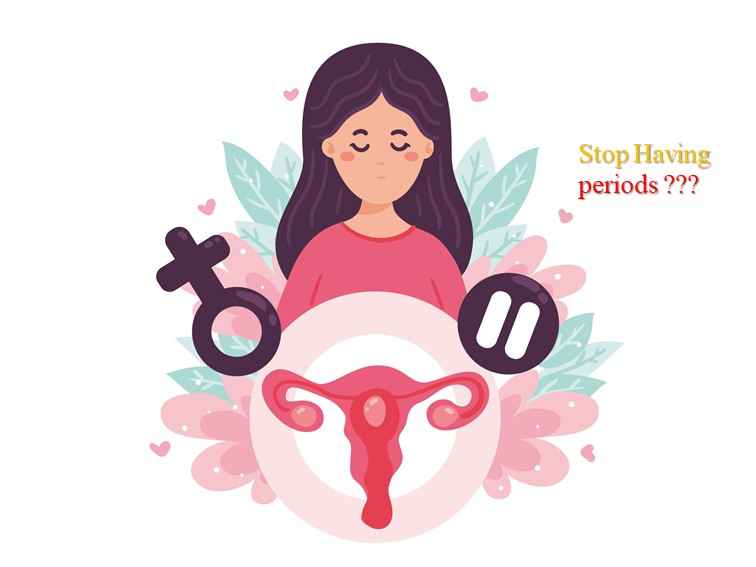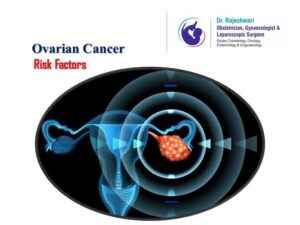Primary ovarian insufficiency (Premature ovarian failure) – This is a condition in which there is a premature loss of ovarian function possibly due to an autoimmune cause or disorder. The condition may also result from genetic abnormalities and drug therapies.
In this condition, there is a premature loss of eggs from the ovary (mostly due to genetic cause or drug therapy). Low production of eggs and Estrogen often leads to infertility and hampers pregnancy and mimics menopausal symptoms.
There is often confusion between primary ovarian insufficiency and premature menopause as both conditions look similar but are not the same. Women with POI can still have occasional or irregular periods for years and get pregnant, but in case of premature menopause, they stop having periods and cannot get pregnant.
What are the causes of Primary Ovarian Insufficiency?
Primary ovarian insufficiency may be caused by:
Toxins from chemicals, cigarette smoke, viral infections, pesticides, and other sources hasten ovarian failure. These are some of the common causes of toxin-induced ovarian failure.
Primary ovarian insufficiency is also associated with certain genetic disorders and chromosomal changes such as mosaic Turner syndrome ( In this condition, there is only one X chromosome ) and Fragile X syndrome (In this condition, X chromosomes are fragile and break).
Autoimmune disease: In this rare immune system disorder, the immune system produces antibodies against the ovarian tissue. These antibodies damage the follicles and the eggs. What causes an autoimmune response is unclear, but viral exposure is one possibility.
Unknown factors: The cause of primary ovarian insufficiency is often unknown (idiopathic). Your gynecologist may recommend further testing to find the cause, but in many cases, the cause remains unclear.
Patients with exposure to chemotherapy or radiotherapy may have primary ovarian insufficiency due to the drugs and radiation dose.
What are the Risk factors for POI?
The factors that increase the risk of developing POI include the following:
Age: The risk increases with age and is high between ages 35 and 40 years. Though it is rare before age 30, there is still a possibility of this condition in younger women.
Family history increases the risk of developing primary ovarian insufficiency.
Surgeries that involve the ovaries increase the risk of primary ovarian insufficiency.
What are the complications of primary ovarian insufficiency?
Complications of primary ovarian insufficiency:
Inability to get pregnant due to depletion of eggs or destruction of follicles and eggs. In rare cases, pregnancy may be possible.
Depletion of Estrogen hormone can increase the risk of osteoporosis – in this condition bones become weak and brittle. Women who have this condition are at risk of breaking their bones.
Low levels of Estrogen may increase the risk of heart disease in women.
Anxiety or Depression: Due to complications and infertility issues associated with primary ovarian insufficiency, some women may develop anxiety and depression.
What are the symptoms of Primary Ovarian Insufficiency?
Signs and symptoms may look similar to menopause or Estrogen deficiency and include the following:
- Skipped or irregular periods may be present for years
- Periods may become irregular after stopping birth control pills or after pregnancy
- Vaginal dryness
- Night sweats
- Hot flushes
- Difficulty getting pregnant
- Irritability
- Decreased sexual desire
- Difficulty concentrating
How is Primary Ovarian Insufficiency Diagnosed?
Your gynecologist may suspect this condition if you have irregular periods or inability to get pregnant. The doctor may ask a few questions regarding the menstrual cycle, previous ovarian surgery or treatment, or cancer therapy and then conducts the pelvic examination. She may also recommend pregnancy tests; hormone tests involving FSH, estradiol, and prolactin. In some cases, your doctor may also order karyotyping to check chromosomal aberrations.
Bottom Line
The best bet is to approach an experienced gynecologist whenever your menstrual cycle changes or when you persistently miss your periods – say for three or more months together. Though missing periods can be due to many reasons including pregnancy, stress, change in exercise habits, diet, and many more other factors – see your gynecologist to know the cause.
Some women don’t mind if their periods change or if they don’t get periods. In such cases also, it is advisable to see a gynecologist to find out the exact cause.
Remember – low Estrogen levels can cause weak and brittle bones and increase the risk of cardiovascular disease and heart attacks in women.




